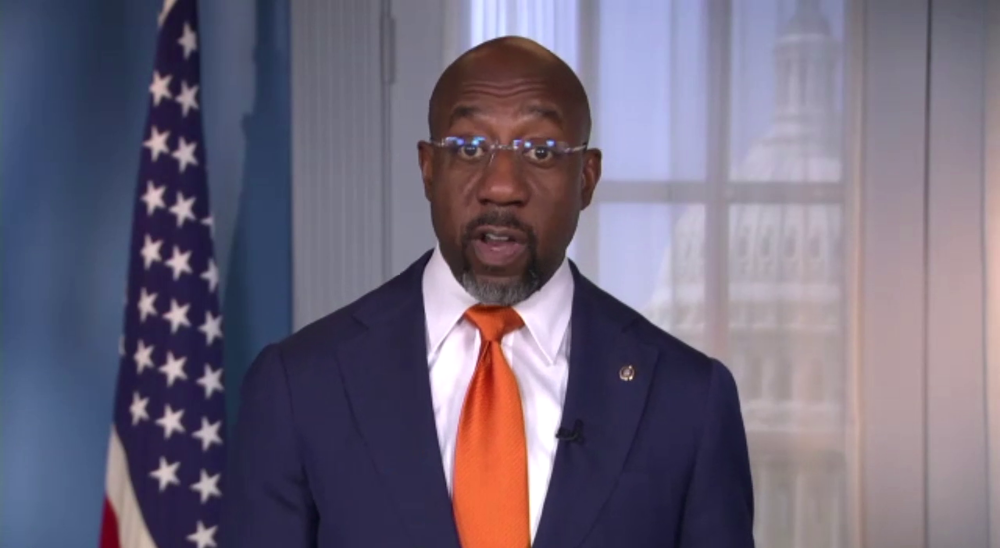
Caption
Georgia U.S. Sen. Raphael Warnock speaks during a virtual news conference from Washington, D.C., on Aug. 1, 2024.
Credit: Office of Sen. Raphael Warnock
LISTEN: The American Housing and Economic Mobility Act is meant to address the nation's housing crisis, but it faces likely Republican opposition. GPB's Benjamin Payne reports.

Georgia U.S. Sen. Raphael Warnock speaks during a virtual news conference from Washington, D.C., on Aug. 1, 2024.
Georgia U.S. Sen. Raphael Warnock announced Thursday that he will try to revive a scuttled bill on affordable housing that failed to advance past a congressional subcommittee in 2022.
The American Housing and Economic Mobility Act of 2024, which he plans to introduce as a lead sponsor alongside Massachusetts U.S. Sen. Elizabeth Warren, would spend over $500 billion over 10 years to build nearly 3 million new housing units in the U.S., as the nation faces a housing shortage, rising rents and high home prices.
According to a summary of the bill provided by Warnock's office, it would also limit the role of corporate landlords in the housing market and create incentives for local governments to eliminate “unnecessary” land use restrictions, among other measures.
“In every corner of Georgia, the No. 1 issue I hear about most often is how we are going to address the housing affordability and availability crisis,” Warnock said during a news conference. “I hear it around every corner. And the problem today is perfectly clear: More Americans are working more hours only to see their cost of living go up and financial security go down.”
According to an independent analysis by the financial research firm Moody's, the law would bring down rents by 10% on average for lower- and middle-income families.
The legislation faces an uphill battle in Congress, as it calls for an increase to the estate tax — which Republicans have traditionally opposed — to fund its spending.
When asked by GPB about its chance of passing, Warnock said, “My opinion is that affordable housing [and] accessible housing is not a partisan issue, certainly not a Democrat or Republican issue. It's a human dignity issue. It's about whether or not you think young children ought to have a place to lay their head at night.”
The previous version of the bill — which was introduced by Warren in 2021 and with which Warnock was not involved — failed to advance past a subcommittee on financial institutions and consumer protection.
That legislation and its companion in the House — which also stalled in a congressional subcommittee — had no Republicans among the bills' sponsors or cosponsors.